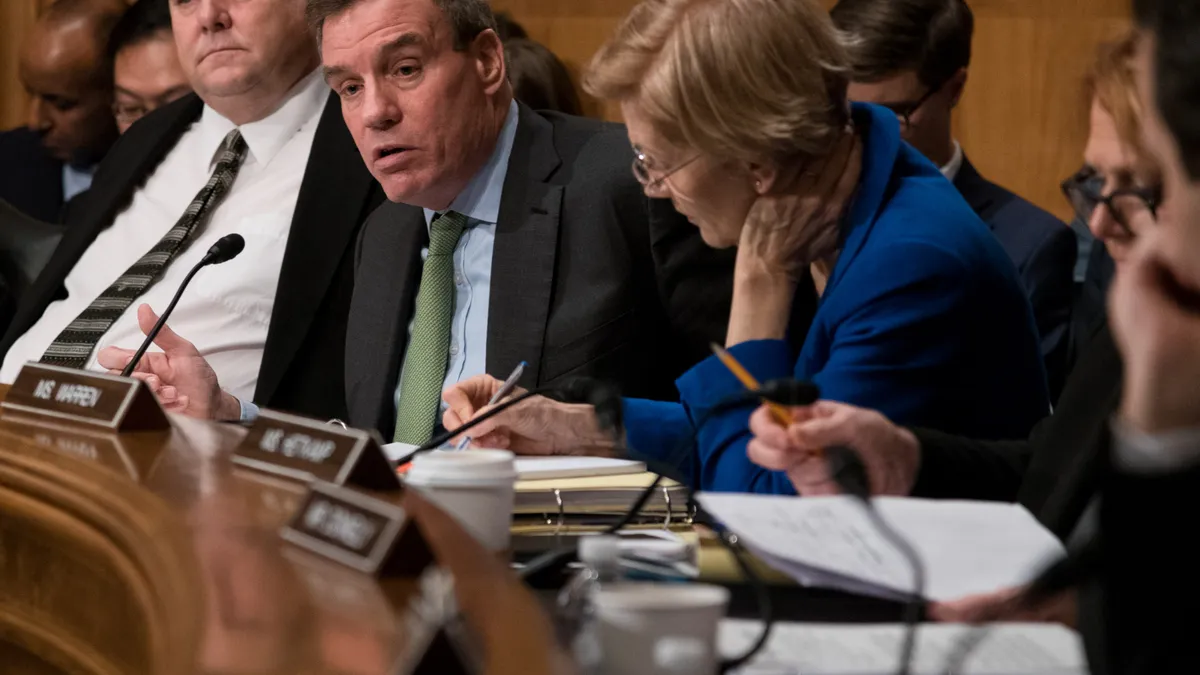Dive Brief:
- In the international technology arena, the U.S.'s posture is weakening. China's key investments in high-tech fields like 5G and quantum computing and the 2025 national plan will surpass U.S. technology investment in the next few years, according to Sen. Mark Warner, D-Va., speaking at an Axios event in Washington on Tuesday. The U.S., in contrast, recently eliminated its cybersecurity coordinator, has yet to nominate a top science adviser and isn't putting as much into R&D investment as it needs to be, he said.
- As the U.S. government continues to chase 2016 technology implicated in presidential election meddling, especially fake accounts and bots on social media platforms, it's failing to look forward to the next wave of danger — deepfake technology, according to Warner. Deepfake technology uses deep learning, a subset of artificial intelligence, to superimpose the likeness of a person onto a scene that didn't happen — creating fake videos of an event or person speaking that never actually happened.
- The U.S. needs a strong relationship between Congress and industry because "if you leave us on our own, we're going to mess it up," Warner said. If deep fake technology has a significant business or political repercussion, Congress might overreact.
Dive Insight:
In light of privacy scandals, cybersecurity breaches and newly enacted European data protection regulation, the tech industry has been in the bright spotlight of American politics frequently over the last year. From CEOs getting grilled in front of full congressional committees to Supreme Court cases testing the limits of antiquated technology legislation, it hasn't always held up under the glare.
The government and the industry are changing the way technology is understood, implemented and dispensed, driven in part by an awakening in the public regarding who owns data, what can be done with it and where the limits will be drawn. With stiff competition overseas, especially in the Asian market, more leaders are calling for public and private communication and collaboration.
Between the shortage of tech talent that is so acutely felt in government and the lack of tech fluency among many legislators and regulators it is critical for the government to siphon the expertise of the industry.
But the partnering of public and private is more than sit downs between President Donald Trump and leaders of the country's biggest tech firms. Hearings with experts to discuss regulation of key technologies like artificial intelligence and open data policies by the government are a critical step to open dialogue and increase understanding.
Technology pervades every area of the average American's life, and bringing the focus to a more personal, smaller scale is also important. Cities and municipalities are the "ground zero" for data, where huge stores of data and critical infrastructure happen, according to Ginger Armbruster, chief privacy officer for Seattle, speaking at the same event.
At the city level, governments face a teetering balance between protecting data and privacy and implementing programs to help constituents.
Seattle is having the privacy conversation at the local level and has built a privacy program around a set of basic data principles, baking procurement and product management into its processes. The city works with a variety of businesses to implement new technologies and solutions, such as an app that improves driver behavior, according to Armbruster.











